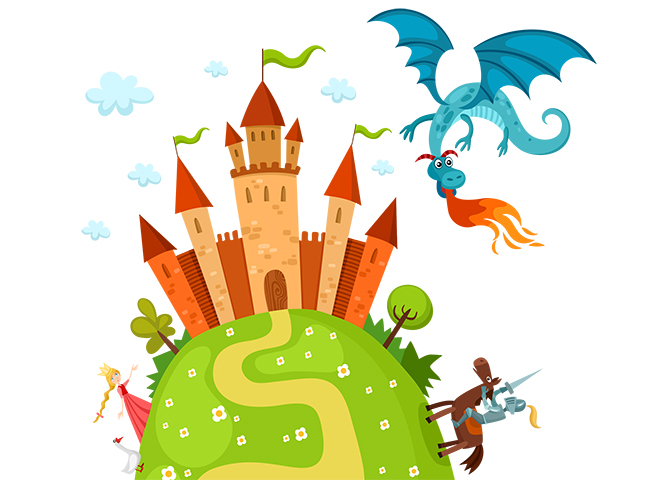
This is the question asked by Dr Jacek Wasilewski, expert on rhetoric at Warsaw University and juror of the Szpatly Roku Custom Press Association competition, whenever he advises brands. Good storytelling is the basis of contemporary marketing. Robin Hood, David and Goliath, Tom and Jerry… These are not just cartoon characters, but also corporate stories. We should tell about our company in the convention of a fairy-tale: tell about your fight with an enemy, where you win thanks to your company’s values, about “seven leagues” you had to travel to provide the best solution to your customers, about evil witches arousing conflicts. Let your company act as one of the tale characters, e.g. let it be a good fairy or the white knight, or a brave boy fighting the bloodthirsty dragon. The mechanics of an interesting text is not to simply provide information but to tell stories.

One example comes from Apple – presentations by Steve Jobs were unlike a typical interview with the CEO. They were not like self-made greeting card, but his tale about a change, travel, overcoming obstacles and doubts. Stories need to meet the defined expectations of the reader: integration (understanding the events, coherence and continuity), social (sharing experience, participation) and identity (self-defining, uniqueness, giving a meaning to life). It is the function of stories that makes them so important. The emotions evoked by a story make the listener aquire and accepts the brand’s message and values. “Journalism is about finding the meaning, it is close to art, it is working on the ‘sense’,” says Jacek Wasilewski. Stories allow to make an impact, to express emotions, to show a good example (e.g. brand success stories), they are a crucial element of identity, they also entertain, comfort, make you think. In addition, corporate content becomes good literature, just like fairy tales – enjoyable to read and addictive. “In the world of narration the narrators are people, who have their reasons in making decisions, but the narrative rationality depends on our story’s coherence and reliability,” explains Jacek Wasilewski.
A great example of building a brand’s coherent story in the convention of a fairy tale is “The Lego Movie” – computer animated film by Warner Animation Group. Lego has built a philosophy around its product, centered around a simple thought: bricks are for building. Making something of Lego bricks is the motor of fantasy, and so the full message is: Set your imagination free, you can be anyone you want – we give you the whole world of Lego.”
The company was trying to keep the image and legend of “the good toy” invented to the glory of creativity, and at the same time not to go bankrupt in the world of capitalistic competition – and it was close to becoming bankrupt in the previous century. The company was searching for compromises – in the 1990s it was clever to invest in cooperation with huge film studios and started to enter the video games sector. Since then, the company has been more part of pop culture than the toy industry. The movie is a funny comment to Lego’s going through that change. It has many references to that process and introduces Lego cult characters. It is a polemic with the world of adults (deprived of children’s ease and imagination) and their business-like attitude to pop culture, where mixing up “Star Wars” with Shakespeare is forbidden without an agreement from the owners of copyrights.
The main character, Emmet, a perfectly average Lego yellow minifigure, has to save the Lego community from evil Lord Business, who imposes his vision of standardized world, organized in accordance with a strict instruction. Creativity and imagination finally win, which is an invitation to return to childlike freedom and remixing. But this is also a self-aware film: ironic, balancing on the verge of self-parody, sentimental and full of flavors from the company’s long history. The “remix culture” is about transforming everything into Lego bricks.
The text appeared on the blog Content Exchange by Custom Content Council.
Kategorie: top trends, school of contentic